#john Willoughby
Text
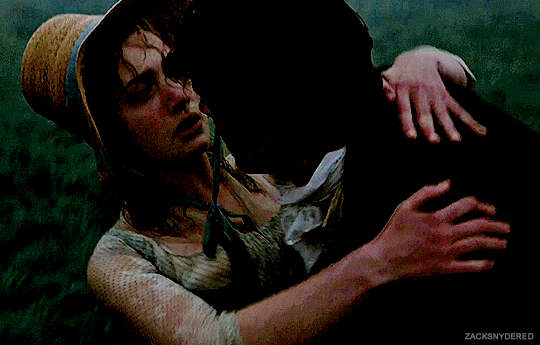

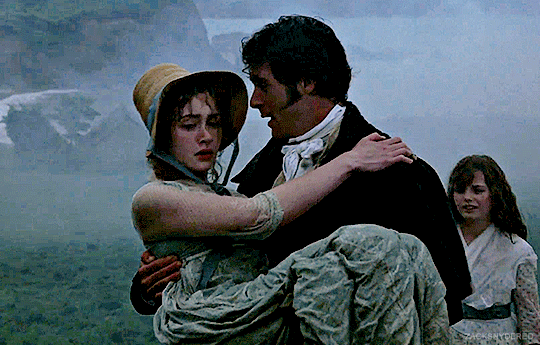
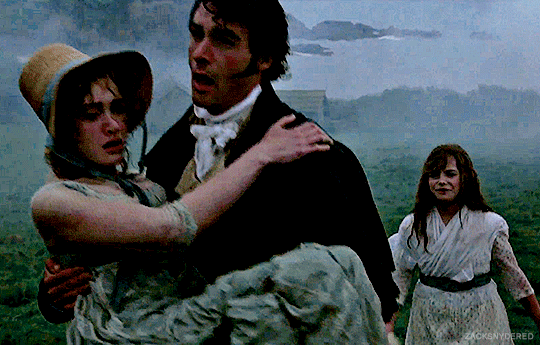
Sense and Sensibility
1995 ‧ Dir. Ang Lee
#sense and sensibility#kate winslet#senseandsensibilityedit#marianne dashwood#sense and sensibility 1995#perioddramaedit#perioddramasource#perioddramagif#cinemapix#filmtvedit#filmtvsource#mine.#edit: gifs.#film: sense and sensibility.#safarigirlsp#John Willoughby#Greg Wise
214 notes
·
View notes
Text
Quarter-Final Two
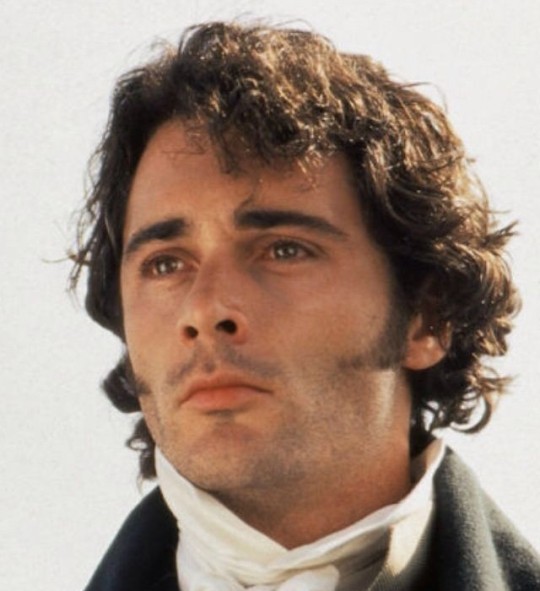
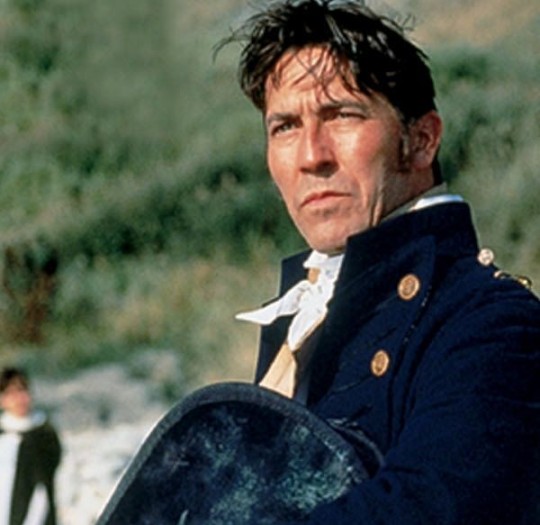
Propaganda...
Willougby (1995) :
95 Willoughby is testosterone on legs when he whisks Marianne into the cottage. Everyone is flummoxed by him and I love it. You feel Marianne’s pain and shock that this seemingly perfect man who was her soulmate is a cad. She questions her own judgment in everything wondering if any of it was real. Pretty perfect.
Look is the man a rake yes! But you can't be a rake if you're not hot and this is a hotness competition - out of all the men left in this tournament John Willougby is the man who knows the art of seduction. Look at how he takes off Marianne's shoe in this scene - think of how he would take off everything else. He runs through the rain - sweeps her off her feet and then asks to call - comes the next day with flowers and a pocket of SHakespeare sonnets - he may not be reliable but he is undoubtedly hot!
youtube
1995 Willoughby was so good that Emma Thompson married him
Captain Wentworth (1995):
Ciaran Hinds has that perfect ruggedness yet friendliness to his face that makes him the perfect charming Wentworth. And all of the longing that he manages to convey in his eyes is so hot.
Wentworth may be angry/resentful with Anne but in general he is charming and the best friend you could ever have. Ciaran gets the pleasant parts of his character and brings them out, while keeping a guarded coolness (protective camouflage) with Anne.
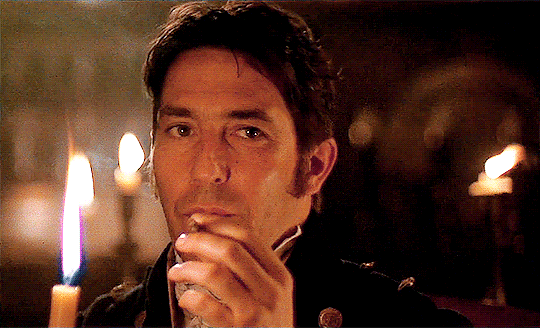
I dunno if this counts as propaganda or not, but Ciaran Hinds has a face that looks like it was jackhammered out of a shale cliff.
If a line like 'I am half agony...half hope' comes out of a face like that you know that man has a soul for poetry.
#quarter-finals#hotjaneaustenmenpoll#Willoughby#captain wentworth#john willoughby#sense and sensibility 1995#persuasion 1995#greg wise#ciaran hinds#persuasion#sense and sensibility#jane austen#Youtube
238 notes
·
View notes
Text
"Willoughby could not hear of her marriage without a pang; ... For Marianne, however, in spite of his incivility in surviving her loss, he always retained that decided regard which interested him in every thing that befell her, and made her his secret standard of perfection in woman; and many a rising beauty would be slighted by him in after-days as bearing no comparison with Mrs. Brandon."
I'm normally too focused on 'well, well, if it isn't the consequences of your own actions' to really think about how this sort of thing would affect Marianne, but I mean, it's quite creepy, right??
Imagine you're living your life, happy with your husband, healed and flourishing, and every now and then you find out your HORRID ex is insulting other young women (and they must be young, if they're a 'rising beauty') by invoking your name. Like leave her alone, Willoughby!! You hurt her enough. She was 17 (to your 25) when she was in love with you, she's grown up, seen you for who you really are, and moved on. There's something incredibly selfish about even after treating Marianne so horribly, he refuses to stop associating her name with his own. I wonder how many people would know of Marianne PURELY because Willoughby casually mentions (many times) a young lady has no resemblance to her.
No one wants their worst ex to keep haunting the edges of their life.
#at least the 'standard of perfection' bit seems to be kept secret#but i mean if the other women are slighted by him AS having no comparison to Mrs Brandon as opposed to slighted FOR it#then yeah he's saying it out loud since the ladies don't think the slight is him randomly dismissing their looks but the comparison#Marianne just living her life and a new acquaintance goes#'oh wait are you the Mrs Brandon who knows Willoughby? The one he considers far superior to Miss RisingBeauty?'#Even when the man can't do any active damage anymore because Marianne has moved on and he's out of her life he still lacks the decency to#actually leave her alone and respect her distance#i mean i'm not surprised but i still hate it#and it's such a real thing of manipulative exes regardless of the time period#sense and sensibility#jane austen#john willoughby#marianne dashwood#discourse
88 notes
·
View notes
Text




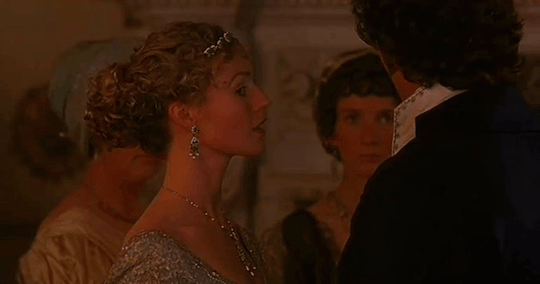
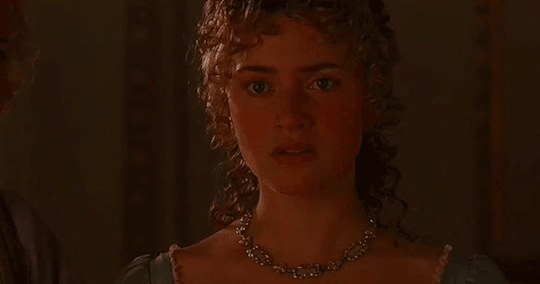

SENSE AND SENSIBILITY (1995)
dir. ang lee
#sense and sensibility 1995#jane austen#costume drama#period drama#perioddramaedit#perioddramagif#marianne dashwood#elinor dashwood#john willoughby#kate winslet#emma thompson#greg wise#my gifs#mine
98 notes
·
View notes
Note
I've been thinking about Willoughby, Crawford and Wickham and how they play somewhat similar roles in their respective novels without being the same character.
Crawford is bored and his flirting is just meant to entertain him. He doesn't care about what this does to the woman or potential consequences (mainly for her, his behaviour seems to be based on plausible deniability. He never openly courtes the Bertram sisters so he can't get shunned for that). He's indifferent rather than malicious.
Wickham is a gold digger, he likes the attention but would never do anything to hurt his potenial prospects (running away with Lydia seems to contradict that but 1) he refused to marry her (until he was bribed by Darcy) because he was still betting on finding a rich heiress and said it was Lydia's own fault for coming with him and 2) even though it was a fairly public stunt I doubt it would be talked about outside of Hertfordshire or Meryton (and why would Lady Catherine tell her friends when they don't know the Bennets or Wickham? Then again, who knows with Lady Catherine?).)
Somehow Willoughby feels like the worst of them all. He seduces girls because he has nothing else to do like Crawford but when he gets Eliza pregnant he dips and abandons her which feels malicious or at the very least cowardly. The way he leaves Marianne, ignores her and then his marriage is even more spineless.
He really is the most detestable out of them all.
(John Thorpe would be on this list but he has neither the charm, looks nor brains to seduce anyone. He is playing this game completely alone but convinced he's winning big time.)
I agree with you!
The big difference with Willoughby in my mind is how far he'll go. Henry Crawford and his sister may joke about how he doesn't plunge girls too deep, but he walks a very careful line of plausible deniability, as you say, for both himself and the Bertram sisters (and we assume for other women he's flirted with in town).:
Everything returned into the same channel as before his absence; his manners being to each so animated and agreeable as to lose no ground with either, and just stopping short of the consistence, the steadiness, the solicitude, and the warmth which might excite general notice. (Ch 12)
He leaves both of the Miss Bertrams with their reputations intact when he departs from Mansfield for Bath.
This is very different from how Willoughby behaves, where everyone in his and Marianne's circle is pretty certain that they are engaged. Also, Henry Crawford pretty pointedly "dumps" Maria Bertram, while Willoughby ghosts Marianne and leaves their relationship open ended like a coward, as you pointed out.
Another despicable thing both Wickham and Willoughby do is prey on women who are of lower status: Eliza Williams and the tradesmen's daughters of Meryton. We are never told that Henry Crawford does anything like this, his game is played with social equals and we are never given any indication that the unmarried women he flirts with are in danger of physical ruin. His affair with Maria Rushworth at the end is awful, but Maria was a married adult and she knew what she was getting into, the narrator even confirms that it was her idea. It's on a different level from what Willoughby and Wickham did with younger women who had less ability to understand the consequences.
#question response#john willoughby#george wickham#henry crawford#pride and prejudice#jane austen#sense and sensibility#mansfield park
66 notes
·
View notes
Text
Sir John Middleton: *outraged* what a scoundrel, that Willoughby! How could he play with our dear Marianne's heart so carelessly! And to think that he presented himself so well! This cannot do, I will personally go around telling everyone how badly he behaved with Marianne!
Elinor Dashwood: *urgently* but by doing so you would also expose Marianne to everyone's judgement-
Sir John Middleton: he will face the music!
#jane austen#sense and sensibility#elinor dashwood#marianne dashwood#john willoughby#sir john middleton#crack but also text
27 notes
·
View notes
Text
Marianne when Willoughby gave her a horse:

Elinor knowing they had nowhere to put this fucking horse and no staff to care for it:

#elinor has to have all the braincells#sense and sensibility#marianne dashwood#elinor dashwood#john willoughby#liveblog of me reading jane austen if you wanna laugh
237 notes
·
View notes
Text
Re-reading Sense & Sensibility is so funny because there's a moment where Marianne asks, in genuine shock and horror, if Willoughby is selfish, and I cannot stress enough that it is at nearly the end of the book.
At this stage in the narrative Willoughby has done (and explicitly admitted to in the text):
Seducing, impregnating and then abandoning a fourteen year old because he was BORED
Flirting intimately with Marianne with no notion, at first, of marrying her even though he shamelessly raised her hopes; again because he was BORED
Fleeing in terror after he caught feelings, but NOT because he caught feelings, mind, but because his main hope of gaining masses of wealth was a female relative who disapproved of what he had done to Pleasant Diversion Girl #1 and he was mortally terrified of being poor; and while he did love her, Marianne was too poor for his delicate tastes to consider marrying now
Ghosting Marianne entirely to avoid being Embarrassed by his own conduct
Spent his entire time in London semi-stalking them specifically so he could Ghost her Extra Hard Core; so he was essentially yeeting himself out of the nearest window whenever they were in spitting distance because, again, he was Embarrassed and didn't want to be seen as The Bad Guy
Failed his Ghost Protocol so epically that Marianne found out his disappearance had been deliberate in the middle of a public forum and then disclaimed all responsibility for the scene this caused
Signed his name to a letter in which claimed he was at exactly zero fault for getting her hopes up and was deliberately intended to be cruel and break Marianne's heart because while he loves her most tenderly his new fiancée, who wrote it, holds the purse strings and he wants the money so bad he goes along with it, which eventually leaves Marianne so emotionally damaged she becomes deathly ill
While Marianne lay on her near-death bed after weeks of pining and misery, he stumbles into the scene and gives Elinor, the long suffering sensible sister, a long, drunken monologue about how his wife is very mean and he's very sad and hard done by except for being filthy rich, never really apologizes for the letter (he does explain its existence) and only really mentions the fourteen year old he left pregnant and ruined when he victim-blames her or does an impression of the 'I am blind I cannot see' meme or moans and groans about how he's so put-upon and misunderstood. (This is where he explicitly admits he only did what he did to the two girls out of, and I am not making this up, boredom)
And, like, Marianne knows this. This has all been wholly related to her IN FULL from Elinor who had the unfortunate fate to have to listen to all of this while her sister was recovering from near-death the next room over and she hadn't slept for something approaching thirty hours. Like, Marianne has read his figurative rap sheet of sheer self-involvement all the way through, including footnotes.
And she's still like: [shocked pikachu face] Willoughby?? Selfish?!!
#jane austen#sense and sensibility#elinor dashwood#marianne dashwood#john willoughby#like girl you nearly died over this#yes he got a little bit of redemption#as a treat#but STILL#weren't you paying attention?
7 notes
·
View notes
Text
Just stumbled upon quite a fun series of videos on youtube. There are more for other Austen books, but here are the Sense and Sensibility ones:
Marianne Dashwood to John Willoughby:
youtube
John Willoughby to Marianne Dashwood:
youtube
Lucy Steele's letter to Edward Ferrars:
youtube
#marianne dashwood#john willoughby#willoughby#miss grey#lucy steele#sense and sensibility#jane austen#adaptation#video
32 notes
·
View notes
Text
Watching Marianne go for Willoughby instead of Brandon in “Sense and Sensibility”, gives me the same irritation as listening to Taylor Swift’s “The way I loved you”.
Why!? Why do you want drama??? Especially when you have sweetness right in front of you!!!!!! She’s such a twit!!!!
18 notes
·
View notes
Text
I’m getting into a fist fight with John Willoughby
#I’m halfway through the book and I want to beat the shit out of him#sense and sensibility#jane austen#john willoughby#s&s#marianne dashwood#she’s so annoying I love her#she deserves much better#elinor dashwood
28 notes
·
View notes
Text
Quarter Finals Master List!
Edward Ferrars (1995) Vs Mr Darcy (1995)
Willoughby (1995) Vs Captain Wentworth (1995)
Colonel Brandon (1995) Vs Mr Bingley (1995)
Mr Tilney (2007) Vs Mr Knightley (2009)
#hotjaneaustenmenpoll#quarter-finals#mr darcy#mr knightley#mr tilney#edward ferrars#captain wentworth#john willoughby#colonel brandon#mr bingley
35 notes
·
View notes
Text
The Willoughby Family Album: Volume III
Oops! I had completely forgot to post an update for the Willoughbys.

Maybe by way of consolation for the alarming skin affliction that they see in the mirror...

Louisa is developing a rather unhealthy "juice" habit.
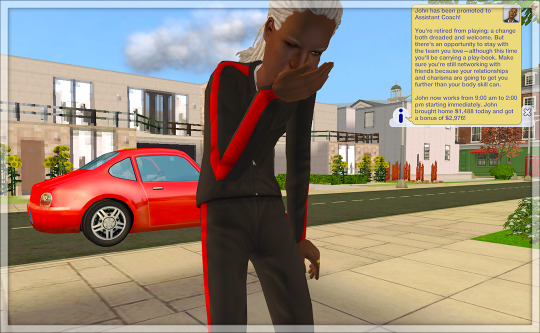
John is doing splendidly at work, although his health is suffering at the moment.
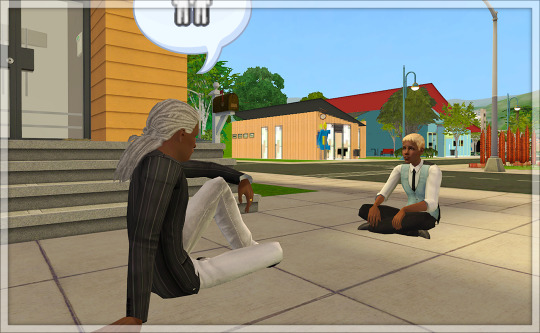
And as always, he has plenty of time for his kids.

However, his wife Caroline has by no means forgiven him for humiliating her so publicly!

And it's all just too much for poor Louisa, to see their parents at each other's throats.

John is banished to the sofa - which won't do his health any good at all.

And, Caroline has no qualms about giving her husband a taste of his own medicine, with old flame Henry.
#sims 2#gameplay#merybury#john willoughby#caroline bingley#louisa willoughby#louie willoughby#henry crawford#willoughby family
14 notes
·
View notes
Text

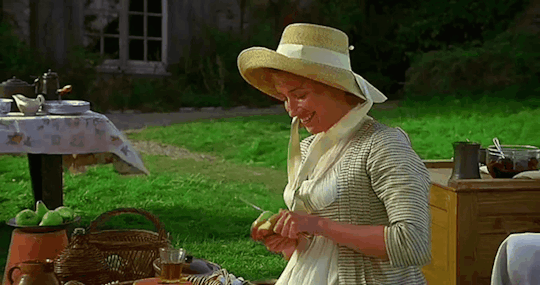



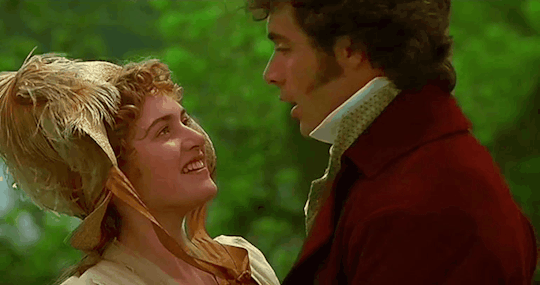



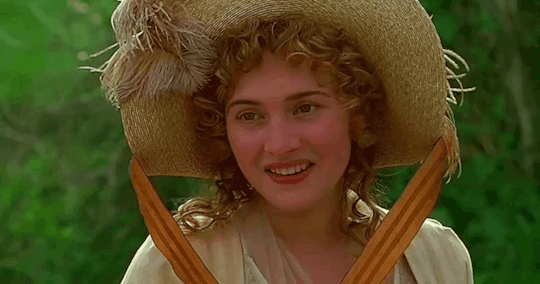
SENSE AND SENSIBILITY (1995)
dir. ang lee
#sense and sensibility 1995#jane austen#costume drama#period drama#perioddramaedit#perioddramagif#elinor dashwood#marianne dashwood#john willoughby#mrs dashwood#margaret dashwood#emma thompson#kate winslet#greg wise#gemma jones#my gifs#mine
82 notes
·
View notes
Text
So many people judge Elinor Dashwood for accepting Willoughby's "apology" (it's really just a sob story where he throws every female in his life under the bus), but she doesn't really forgive him AND she is in a very delicate emotional state and dead tired when it happens. For a full defense, I've taken the quotes that show what Elinor is thinking during Chapter 44-46 of Sense & Sensibility. (This is really long)
He arrives right after Elinor is finally assured that Marianne is going to live, after some very trying moments where Mrs. Jennings was predicting that her sister would die. She is waiting for her mother to arrive, and then he walks in. Her emotional state is intense:
Never in her life had Elinor found it so difficult to be calm, as at that moment. The knowledge of what her mother must be feeling as the carriage stopt at the door—of her doubt—her dread—perhaps her despair!—and of what she had to tell!—with such knowledge it was impossible to be calm.
She is not happy to see him, she only barely agrees to hear him out, she is mostly pissed, "Miss Dashwood, at this point, turning her eyes on him with the most angry contempt" And this is Elinor! Who usually controls her expression of feelings.
Elinor remains pretty annoyed with him throughout:
“I have,” returned Elinor, colouring likewise, and hardening her heart anew against any compassion for him, “I have heard it all. And how you will explain away any part of your guilt in that dreadful business, I confess is beyond my comprehension.”
But as Willoughby goes on, Elinor wavers:
Elinor’s heart, which had undergone many changes in the course of this extraordinary conversation, was now softened again
“You are very wrong, Mr. Willoughby, very blamable,” said Elinor, while her voice, in spite of herself, betrayed her compassionate emotion
She does agree that his explanation at least makes him a slightly better person, but her language is hedged, a lot:
“Yes, you have certainly removed something—a little. You have proved yourself, on the whole, less faulty than I had believed you. You have proved your heart less wicked, much less wicked. But I hardly know—the misery that you have inflicted—I hardly know what could have made it worse.”
And even when she is admitting this, she's going over in her head what could have made him such a terrible person:
Elinor made no answer. Her thoughts were silently fixed on the irreparable injury which too early an independence and its consequent habits of idleness, dissipation, and luxury, had made in the mind, the character, the happiness, of a man who, to every advantage of person and talents, united a disposition naturally open and honest, and a feeling, affectionate temper. The world had made him extravagant and vain—Extravagance and vanity had made him cold-hearted and selfish. Vanity, while seeking its own guilty triumph at the expense of another, had involved him in a real attachment, which extravagance, or at least its offspring, necessity, had required to be sacrificed. Each faulty propensity in leading him to evil, had led him likewise to punishment. The attachment, from which against honour, against feeling, against every better interest he had outwardly torn himself, now, when no longer allowable, governed every thought; and the connection, for the sake of which he had, with little scruple, left her sister to misery, was likely to prove a source of unhappiness to himself of a far more incurable nature.
Now we have the ending:
He held out his hand. She could not refuse to give him hers;—he pressed it with affection.
“And you do think something better of me than you did?” said he, letting it fall, and leaning against the mantel-piece as if forgetting he was to go.
Elinor assured him that she did;—that she forgave, pitied, wished him well—was even interested in his happiness—and added some gentle counsel as to the behaviour most likely to promote it.
So she ends the conversation/whine fest with a lecture on how Willoughby could improve himself! This may be a great example of Christian forgiveness, but she certainly doesn't think he is a good person.
Now Elinor is alone and she reflects on how his charm overcomes her knowledge of his faults:
Willoughby, he, whom only half an hour ago she had abhorred as the most worthless of men, Willoughby, in spite of all his faults, excited a degree of commiseration for the sufferings produced by them, which made her think of him as now separated for ever from her family, with a tenderness, a regret, rather in proportion, as she soon acknowledged within herself—to his wishes than to his merits. She felt that his influence over her mind was heightened by circumstances which ought not in reason to have weight; by that person of uncommon attraction, that open, affectionate, and lively manner which it was no merit to possess; and by that still ardent love for Marianne, which it was not even innocent to indulge. But she felt that it was so, long, long before she could feel his influence less.
and slightly later:
But the rest, which one night entirely sleepless, and many hours of the most wearing anxiety seemed to make requisite, was kept off by irritation of spirits. Willoughby, “poor Willoughby,” as she now allowed herself to call him, was constantly in her thoughts; she would not but have heard his vindication for the world, and now blamed, now acquitted herself for having judged him so harshly before. But her promise of relating it to her sister was invariably painful. She dreaded the performance of it, dreaded what its effect on Marianne might be; doubted whether after such an explanation she could ever be happy with another; and for a moment wished Willoughby a widower. Then, remembering Colonel Brandon, reproved herself, felt that to his sufferings and his constancy far more than to his rival’s, the reward of her sister was due, and wished any thing rather than Mrs. Willoughby’s death.
I think wishing Willoughby a widower is the most damning line here, but the sentence prior make it clear that it is for Marianne's sake, not Willoughby's, that Elinor wishes he was free to marry. And she repents almost immediately. Also, and importantly, Elinor is still not sleeping! So she is still running on anxiety and no sleep when she wishes Mrs. Willoughby dead.
Later, when she does tell Marianne about the encounter a few weeks later, we can see her opinion of Willoughby has definitely soured:
“The whole of his behaviour,” replied Elinor, “from the beginning to the end of the affair, has been grounded on selfishness. It was selfishness which first made him sport with your affections; which afterwards, when his own were engaged, made him delay the confession of it, and which finally carried him from Barton. His own enjoyment, or his own ease, was, in every particular, his ruling principle.”
To summarize: Elinor was tired and emotional when Willoughby arrived and under the influence of his charm, she did begin to think better of him. She did forgive him, but while still dwelling on his faults. When she has time for rest and reflection, and without him present, she thinks more clearly and knows that everything Willoughby did was selfish.
#sense and sensibility#elinor dashwood#john willoughby#willoughby#the confession chapter#jane austen#elinor was tired#Willoughby is very charming#but she never lost sight of his crimes
113 notes
·
View notes
Text
Colonel Brandon: Miss Dashwood, I have heard from Sir John Middleton that your sister is-not well.
Elinor Dashwood: *deep sigh* you heard right.
Colonel Brandon: *forced calm* it was because of Mr Willoughby, was it not?
Elinor Dashwood: *even deeper sigh* Marianne-we have found out that he is to be married to Miss Grey.
Colonel Brandon: I see. I am deeply sorry to give you more pain, but it is necessary that I inform you that she is crying for someone that did not exist in the first place.
Elinor Dashwood: *apprehensively* what do you mean?
Colonel Brandon: *deep breath* it is not easy for me to talk about this as it involves others other than me and I did not want to share it, but I feel this must be healthy for Miss Marianne to know-
~~~Later~~~
John Willoughby: El-Miss Dashwood! I have heard from that unsufferable Sir John that Marianne is on the point of death!
Elinor Dashwood: *deep sigh* that was true-as for now, she is stable.
John Willoughby: *forced calm* oh! Good. I am so-I am so relieved. It wasn't-it was not-does she hate me, Miss Dashwood? Do you all hate me?
Elinor Dashwood: *even deeper sigh* we do not hate you, Mr Willoughby.
John Willoughby: I see! This is not going to be pleasant, but I need to defend myself from the slander Brandon and everyone spread about me-
Elinor Dashwood: *coolly* what do you mean?
John Willoughby: *deep breath* it is not easy for me to talk about as it does not paint me in a very good light and I did not want to share it, but I feel it is only right that Marianne has the whole story-
#jane austen#sense and sensibility#elinor dashwood#marianne dashwood#colonel brandon#john willoughby#sir john middleton#crack but also text
21 notes
·
View notes